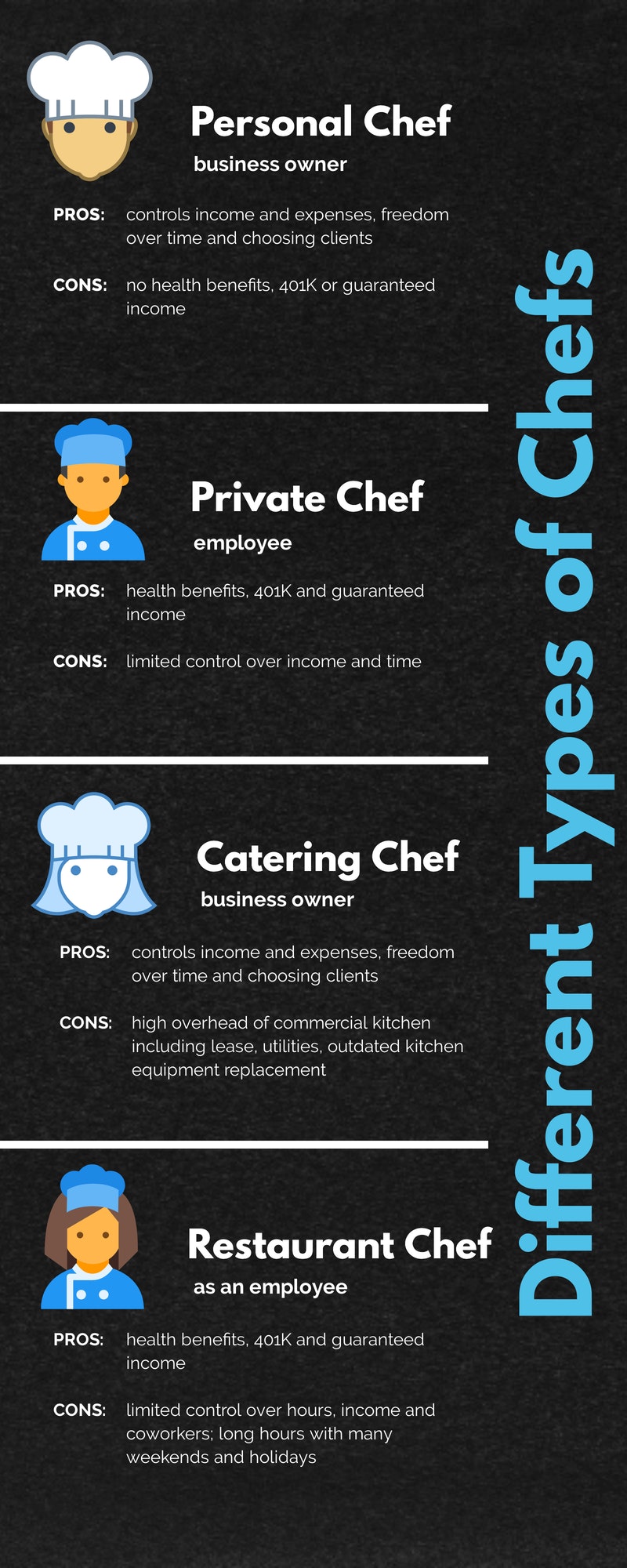What's the difference between a personal chef and a private chef?
Today’s question is, “what’s the difference between a personal chef and a private chef?” This is actually one of my pet peeves - when people call me a private chef.
They’re wrong. I’m a personal chef!
Private Chef
A private chef works for just one family, one individual or one couple. They have one employer. A person has hired them, paid them a salary, and most likely also pays out benefits. They have set hours or perhaps flexible hours.
Hours are different for every private chef and are negotiated via a contract that includes guidelines on how the client and employee will work together. The private chef may also travel with the client occasionally.
In summary, a private chef works for just one client, often one family.
Personal Chef
A personal chef works for numerous families. I usually have between 12 and 16 families at a time and have my company legally structured in a way that I'm paying myself a salary each month. I am not an employee of any of my clients.
At this moment in my business, if one of my clients asked if I would become their private chef, I would say no because for me, it would be like having a job. I prefer the flexibility of having a variety of people to cook for and a choice in which days of the week I'd like to work.
I'm currently in control of my own business. If one of my clients moves away, my business isn’t going to fail. On the other hand, if I were a private chef and the family moves away, that’s the end of my job.
As a personal chef, you have control over your hours. You control how much you charge. You can run your business any way you'd like. You could also start charging new clients a higher rate because it’s your business.
The downside to being a personal chef is that there are no benefits. You don’t have a 401K. You don’t have health insurance. You'll have to go out and get private health insurance and start your own retirement account or future investment strategy.
Catering Chef
A third type of chef is a catering chef who most likely offers events, but occasionally meal prep. The difference between catering chef and personal chef is that the caterer has a commercial kitchen.
With a commercial kitchen, there are added expenses such as a lease. You'll pay a monthly rent plus utilities – trash, electric, gas, water. You may also pay a public space fee if you’re in a kitchen with a parking lot. There’s often a community fee that all stores within a strip mall pay together to take care of the parking lot and landscaping.
There’s also additional insurance needed with a leased space. Of course you’ll pay insurance as a personal chef, but with a commercial kitchen, you'll not only insure yourself and your workers, but you'll have to insure your leased space and all the equipment.
Another added expense is purchasing kitchen equipment. This would not be just a stove and cooking equipment, but also a required ventilation system, which often costs as much as a small car. If you've ever outfitted a commercial kitchen, you’d know that it’s quite pricey.
Here are the pros and cons of the different types of chefs in a summary:

Best Wishes & Much Success to You, Virginia Stockwell
What Kind of Chef Career Will You Begin
There are so many different ways to craft a career out of your culinary skills.
- open a restaurant
- start a catering company
- begin a personal chef service
- work for one family as a private chef
- cook and deliver from your home
You want to share you cooking passion, but what career to choose? This PDF includes the Pros & Cons of each of these professions so you can make an informed decision. Download the PDF >>









